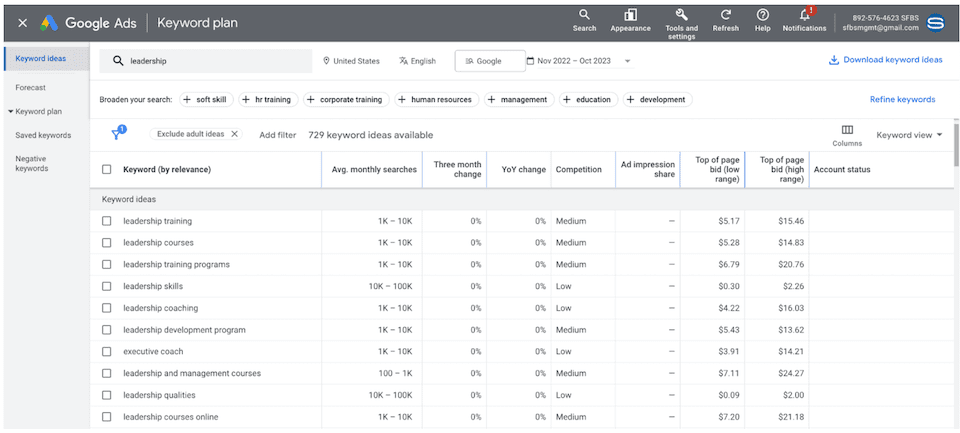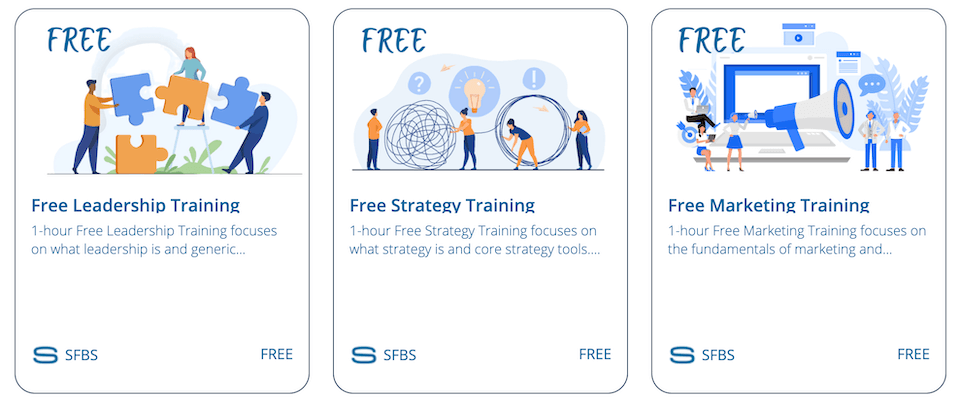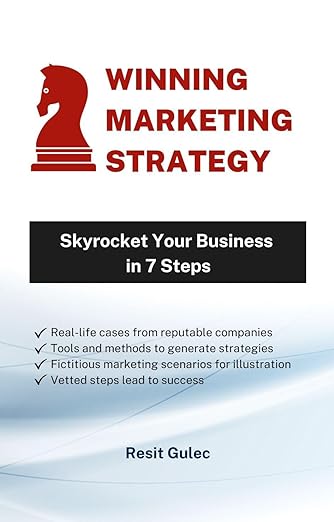Solopreneur Guide: 5 Irrefutable Tips to Grow Your Business Alone
Many successful businesses start as a side hustle or with the vision of a successful solopreneur. Amazon, Apple, Facebook, and many more were started by solopreneurs in a university dormitory, or in the garage of a home. What is solopreneurship, who is a solopreneur, and what are the tips to grow a business as a solopreneur, we’ve explored in this article.
In this article
📌 Hint: Do not skip this article, you will find FREE Solopreneur Training resources throughout the article.
💡 You might be interested in the 21 Leadership Skills Professionals Expect to See in the Workplace article.
Who is a Solopreneur?
Solopreneur is a term derived by combining “solo” which means done by one person alone; unaccompanied, and “preneur”, a french word that means “taker”. Actually, “preneur” is derived from the word entrepreneur.
Solopreneurs are entrepreneurs initiating a company and growing it alone until a certain stage. They perform various tasks since they are the owner and only workforce of their business. Some of the functions performed by the solopreneurs are financial management, operations, IT, content creation, marketing, and sales.
Why Should You Be a Solopreneur?
Everyone has dreams. Money or in general wealth ensures that dreams come true faster. In many cases, day-to-day jobs do not give freedom to people to go after their dreams. Some people have to work even in jobs that they do not like.
However, if you are a solopreneur, you can create a side hustle, turn it into a main income stream, and even grow eventually. Is it easy? Not very easy, but not impossible though if you follow the following steps.
Enhance Your Solopreneurship Skills – SFBS Free Programs
One of the best ways to be a successful solopreneur is to improve yourself continuously. The best way to do this is, to enhance your competence through training programs. Take a step ahead and jumpstart your solopreneurship competence. Enroll in our 1-hour Free Business Training programs.
Solopreneur Tip #1- Focus on Your Expertise
Have you heard the 10,000 hours rule? Malcolm Gladwell, an English-born Canadian journalist, author, and public speaker, repeatedly refers to the “10,000-hour rule,” asserting that the key to achieving true expertise in any skill is simply a matter of practicing, albeit in the correct way, for at least 10,000 hours. For instance, Air Force pilots flying for more than 10,000 hours use an arm patch to show their expertise.

Make sure you have enough experience and expertise in the domain you are planning to initiate your business. Consider yourself focusing on your job, a hobby, or a task for ~6 hours every day. And, a month is 21 working days on average. 10,000 hours will be equivalent to ~1,670 days, or ~80 months, or 7 years! When starting a business, ask the following 3 questions:
- Are you an expert in your domain?
- Can you create attractive content/products/services in this domain?
- Do you love to work in this domain?
If you said “Yes” to all these three questions, you can find a niche in your domain.
Solopreneur Tip #2- Find a Niche in Your Domain
Each industry, domain, or market has its niche segments. Targeting niche markets is denoting products, services, or interests that appeal to a small, specialized section of the population.
For instance, retail and tech giant Amazon was founded by Jeff Bezos from his garage in Bellevue, Washington, on July 5, 1994, as an online marketplace for books. Then, it has expanded into a multitude of product categories.
When Facebook was first initiated, it was exclusive to Harvard students serving as a student directory featuring photos and basic information. Then, in March 2004, it was expanded to Stanford, Columbia, and Yale. This expansion continued with other universities in the US and Canada, and, in June 2004, Facebook moved its base of operations to Palo Alto, California, and started to become a worldwide company.
As Amazon and Facebook did, many other successful companies have a similar story. They start with a small targeted niche market, grow in that market, and expand into new markets in sequence.
How can you find a niche in your domain?
You can ask the following questions to find the right niche market.
- Is there an underserved audience or segment in the market? – If yes, explore that segment.
- Are there lots of competitors in the niche market? – If yes, consider finding another niche
- Are there regulations, or laws in the niche market? – If yes, as a solopreneur, it might be tough for you to enter this market, and find another one.
Once you find your niche, explore the products, services, or content you can provide for this segment. You can check Google Keywords Tool, Instagram, LinkedIn, and other social channels and blogs to identify what people are looking for but there is a little competition.
For instance, if you are writing a business blog, you can search the keywords, and narrow down your research to niche keywords that are searched a lot, but there is a low competition. Otherwise, it will take time to beat the competition and have traffic to your blog.

As you can see, some keywords have medium and some keywords have low competition. The best approach to writing a “leadership” article will be to focus on the keywords having a high average monthly search, and low competition in the beginning. Over time, as your business grows, and receives traffic, you can consider focusing on high-competition keywords.
I can recommend a very good book by Resit Gulec, a success-proven 10-figure exit entrepreneur. He is going through a 7-step framework to skyrocket any business in his Winning Marketing Strategy book. You can find several tips, tactics, and tools to initiate a business in this book.
Solopreneur Tip #3- Time is Your Biggest Asset
Solopreneurs must be patient. Be prepared to have little or no cash flow for a long time. So, make sure you use your resources wisely. You have a limited time and lots of things to do as a solopreneur.
Make a time plan, and focus on the right things and in the right order. Do not focus on the things that will not bring a high impact. In project management, there is a term gold-plating, which refers to doing more than required. Let’s make an analogy here, if your niche market expects a Toyota, do not try to build a Ferrari. It will be exhaustive and you will lose your time on focusing unproductive things.
Consider doing MVPs and demo products to test the market. Testing the waters is crucial if you are a solopreneur. To test the market reaction for a product or service, you can build a landing page or a demo product with limited features, and check the reaction of the target users. If you see a light in the results, you can proceed with the idea further.
Solopreneur Tip #4- Find Online Tools
We are living on the edges of a digital age. There are several tools for doing things online. Instead of paying a significant amount of money for a service, check if there are online tools for the tasks you would like to perform.
For instance, for bookkeeping, you can use QuickBooks, for a narration service, you can AI tools such as Murf, for email marketing, you can use services like Brevo or MailerLite. We can enhance this list for literally everything.
Check the online tools, many of them offer a free trial or refund if you are dissatisfied. Use them before searching for a resource to perform those tasks as it will be a more expensive way.
Solopreneur Tip #5- Grow with Freelancers in Initial Stages
There are certain cases in which you need “the right person”. For instance, if you are not skilled in digital marketing, you can hire a freelancer through Upwork. Similarly, if you are not native in the niche market, you might need to hire native customer support personnel or sales personnel.
Whenever you need a new resource for your business, assess the weekly and monthly need for that resource. In many cases, startups in their initial stages may not require full-time professionals for certain tasks such as B2B sales, marketing, HR, Finance, etc. Analyze the need for the role, if it does not require more than 120 hours of work every month, typically, hiring a freelancer will be a more cost-effective way for your business.
When finding freelancers, hire the top ones. Because you will expect them to do significant work in a limited time. This is only possible with experience. Once you hire the top freelancers, apply the laissez-faire leadership style. It requires the team leadership to be hands-off as much as possible and let the team perform on its own. Steve Jobs and Warren Buffet are famous leaders who applied this style when they were leading their businesses.
Summary
Solopreneurs are actually entrepreneurs performing various tasks alone to initiate and grow a company. Several businesses are started by solopreneurs and then evolve eventually.
We’ve listed 5 tips for solopreneurs. Solopreneurs must start a business in their expertise area to create alone. To be successful, a solopreneur must find a niche target market where there is low competition and demand for products or services.
The biggest asset for a solopreneur is their time. Typically, lots of things to do and there is a limited time. Solopreneurs have to create a plan and deadline for tasks to work organized. Online tools save money and time. Whenever a new activity is required, first search online and try to do so through online tools.
When it is time to have a team, hire freelancers. In the first stages of growth, businesses require expertise in specific areas such as sales, marketing, HR, etc. However, typically, these functions do not require employing a full-time professional. Consider hiring freelance professionals in the initial stages of growth. It will save your budget and help you to find more talented professionals.

